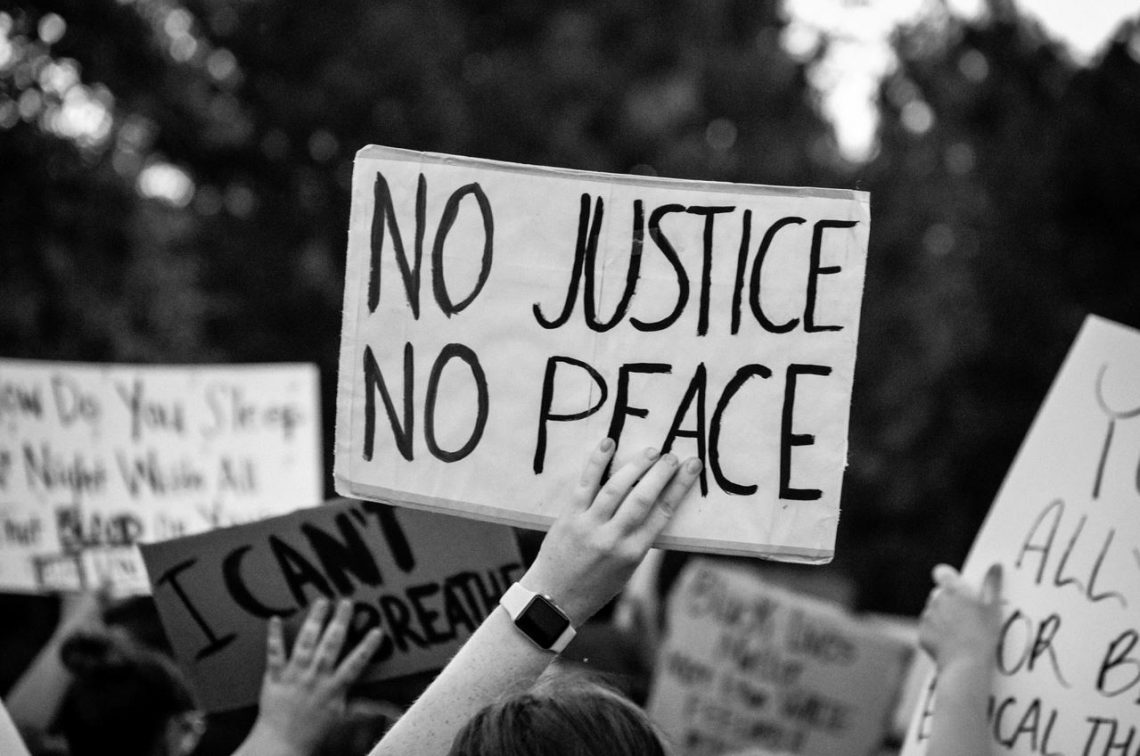Jake Meador recently declared that racial reconciliation within Reformed Evangelicalism is effectively dead: “So far as I can tell, that conversation, which once showed such promise, is over.” You don’t have to agree with his explanation for why this is the case to see that he has a point. Things were already tense before the pandemic, but from the murder of George Floyd until now, we seem to have gotten ourselves into a tailspin. What happened?
Evangelicals have differences over why things are the way they are right now. One side thinks the other is in the throes of Marxist identity politics. Another side thinks the other is marinating in unacknowledged racism. As the battle has been joined on social media and elsewhere, both sides have been guilty of punching too hard at times, which makes rapprochement seem less and less likely with each passing day.
One of the chief bones of contention has been the degree to which Critical Race Theory (CRT) is to blame for our current polarities.1 One side claims that CRT has made significant inroads into the evangelical movement, while the other side says, “Nothing to see here. Move along.” So which is it?
IS CRT A DISTRACTION?
Enter Esau McCaulley with a new essay in Christianity Today. He argues that debates about CRT are a distraction from the real issues of racial justice that came to light during the pandemic:
I am talking not about the virus itself. I am talking about the social crisis of the pandemic, which brought to light the ongoing experience of racism and injustice by ethnic minorities in this country.
The church had an opportunity to lead in this area and show the world how our faith allows us to press for better treatment for all. Instead, some decided to litigate the validity of critical race theory. With Black and Asian blood drying on the concrete streets of American cities, some decided to debate the existence of systemic racism. They did not look at the thing itself. Instead, the thing itself became the occasion for a tired dispute. That debate revealed how portions of the church were ill and in need of healing well before the airborne contagion made its way to these shores.
These sick parts of the body of Christ told us to “just preach the gospel.” There are very few things more harmful for Christian cooperation than the weaponization of the gospel against Black and brown cries for justice.
Is McCaulley right? Is the current conversation about CRT merely a tactic that the right cynically employ to distract from the real problem of racism? Answering this question is difficult because There are some on the right who have made quite the grift out of opposing CRT. I have my own questions about the motives and tactics of that set and suspect that some are not operating in good faith. Also, we can’t rule out the possibility that some people really are (consciously or unconsciously) running from the light.
Having said that, the existence of cynics on either side doesn’t really answer the substantive question that McCaulley poses. Is the debate about CRT just a distraction from the main event of opposing racism? McCaulley suggests that the cause of racial justice isn’t served by the current debate over CRT. Is he right about that?
DEFINING JUSTICE AND RACISM
The short answer is, no, he isn’t at all right about that. To even talk about racial justice implies a definition of justice and of racism, both of which are highly contested right now. There is one side of this debate that is defining justice as equity and racism as a failure of equity, which means that any disparate racial outcome is by definition a failure of justice and an example of racism.
This is why Ibram Kendi argues, “The only remedy to past discrimination is present discrimination. The only remedy to present discrimination is future discrimination.” In short, Kendi believes that we need racial discrimination in public policy in order to elevate blacks and lower whites into social and economic equity. The distribution of wealth, power, and resources in our society should be based on racial discrimination, not on notions of political liberalism or free markets. This is a vision of justice that is foreign to Scripture, and it is exerting an enormous influence upon contemporary conversations about racial justice.
McCaulley wishes for evangelicals to attend to “black and brown cries for justice,” but how are we going to do that if we ignore the fact that what some people call “justice” the Bible calls racial partiality or animus (James 2:9; 1 John 4:20)? There is no way for us to address justice issues faithfully unless we ensure that we are defining justice in a way that matches what Scripture teaches about justice, and Scripture does not prescribe racial discrimination as a part of justice.
My point is simply this. There is no realistic way for us to “look at the thing itself” if we can’t even agree on what we are looking at.
For example, McCaulley says that he was hoping that the deaths of Ahmaud Arbery, Breonna Taylor, and George Floyd “would force America” to reckon with the injustices being perpetrated on “Black lives.” McCaulley makes no differentiation between the facts of these cases but simply offers them as examples of racism. I personally mourned all three deaths and view them as horrific injustices, but I also recognize that the facts in each case are different. Two of them were surely murder. Nevertheless, only one of those deaths seems to have been the result of any demonstrated racial animus on the part of the killer. Is recognizing these differing facts a failure to “look at the thing itself”?
To be clear, I am not suggesting that McCaulley has embraced the radical activism of Kendi. Nor am I saying that he endorses CRT wholesale. That’s not the case at all. Nevertheless, I do think that McCaulley’s essay grossly underestimates the influence of CRT on how people think about race and justice. Debates about CRT are not a distraction from the conversation we need to be having. On the contrary, they are the conversation we need to be having. If Christian brothers fail to come to terms on CRT, we will look at the same data and come to vastly different conclusions about their meaning. This is not to deny that racism still exists in the world. It certainly does. Nevertheless, much contemporary discourse about racial justice has been influenced by CRT, and we can hardly have a productive conversation unless all sides recognize the pervasiveness of this ideology. For that reason, we must reckon with the possibility that the same ideology might be influencing Christian conversations as well.
UNDERSTANDING THE TIMES
If we are going to understand our own times and what the people of God ought to do (1 Chron. 12:32), we must reckon with the influence of CRT. We also must also engage Critical Theory more broadly as it exerts influence in both the culture and our churches. We are going to have to do what Scripture enjoins us to do:
Colossians 2:8 “See to it that no one takes you captive through philosophy and empty deception, according to the tradition of men, according to the elementary principles of the world, rather than according to Christ.”
For my part, I am concerned about two key areas when it comes to the dangers of CRT: the people in the pews and the men behind the pulpit.
(1) The People in the Pews. Ordinary Christians are the ones struggling most acutely with fallout from CRT. Anyone who has spent any amount of time in pastoral ministry understands that they are ministering to people who have workplaces or schools that are force-feeding them this ideology. Their day-to-day experience involves HR departments mandating “woke” propaganda sessions disguised as “diversity” or “racial sensitivity” training. Many of our people are trying to figure out how to be faithful to Christ in a work environment that seems to be hostile to their faith.
I am a pastor, and dear congregants in my own church are coming to me with these stories and asking for help. I have asked in the past for permission to write about their stories while keeping their identities anonymous, but they do not feel it is safe even to share anonymously because of the possibility of their being found out. These people aren’t racists. They are just trying to figure out how to be faithful to Christ without losing their jobs. Some of them are coming to the sad realization that they may at some point have to choose between keeping their job and following Christ. These brothers and sisters need their pastors not to ignore this ideology, but to help them understand what it is, where the dangers are, and how to avoid them.
(2) The Men behind the Pulpit. In my own denomination, my main concern is not that pastors or leaders are becoming Critical Race Theorists. I don’t believe that. Most leaders I know recognize at least some dangers within CRT. My concern is primarily with those who underestimate how toxic this ideology is, how pervasive it is, and how its categories may be shaping their own thinking in ways they may not even realize. If there is such a thing as unconscious racial bias (and I believe there is), there is also what we might call unconscious CRT-bias. This ideology is so pervasive today in the wider culture, we shouldn’t be surprised that it might be making inroads into our own habits of thinking without our even realizing it. Unless we are vigilant to “take every thought captive to the obedience of Christ” (2 Cor. 10:5), we might find ourselves making use of analytical tools that are implicated in a worldview that we would otherwise repudiate.
CONCLUSION
I don’t agree with the idea that racial reconciliation is dead among us. We can hardly be the church at all unless the Spirit of God is making us into “one new man” in Christ (Eph. 2:14). Nor do I agree that we can ignore one of the most dangerous, divisive ideologies of our time and be faithful to Christ. We have to know what CRT and Critical Theory are so that we might be able to respond faithfully when confronted with them. Pastors especially have a duty to shepherd the flock in a way that prepares them to meet the threats coming at God’s people. If we want to see God’s people made into “one new man,” if we wish to see the hostility torn down and reconciliation among the races, we have to recognize that CRT is not going to get us there. Indeed, it will prevent us from getting there.
This is not a distraction from the work. It is the work. Or at least a crucial part of it (Titus 1:9). As pastors, we can no more ignore CRT than we can ignore our duty. And that is something we must never do.
__________________________
1 For what has become the standard introduction to Critical Race theory, see Richard Delgado and Jean Stefancic, Critical Race Theory: An Introduction, 3rd ed., Critical America (New York: New York University Press, 2017). For a brief sketch of the basic tenets of Critical Race Theory, see Lois Tyson, Critical Theory Today: A User-Friendly Guide, 3rd ed. (London and New York: Routledge, 2017), 352-61. For the purposes of this essay, I agree with Harper, Patton, and Wooden that “While no single definition exists for CRT, many scholars agree on the centrality of seven tenets: [1] Racism is a normal part of American life, often lacking the ability to be distinctively recognized… A CRT lens unveils the various forms in which racism continually manifests itself, despite espoused institutional values regarding equity and social justice… [2] CRT rejects the notion of a ‘colorblind’ society… Critical race theorists continuously critique institutional claims of liberalism, neutrality, objectivity, color blindness, and meritocracy…These ideas camouflage the socially constructed meanings of race and present it as an individualistic and abstract idea instead of addressing how racial advantage propels the self-interests, power, and privileges of the dominant group… [3] CRT gives voice to the unique perspectives and lived experiences of people of color… CRT uses counternarratives as a way to highlight discrimination, offer racially different interpretations of policy, and challenge the universality of assumptions made about people of color… [4] CRT recognizes interest-convergence, the process whereby the white power structure ‘will tolerate or encourage racial advances for Blacks only when they also promote white self-interests'”… [5] Revisionist History is another tenet of CRT [which] suggests that American history be closely scrutinized and reinterpreted as opposed to being accepted at face value and truth… [6] CRT also relies on Racial Realists, or individuals who not only recognize race as a social construct, but also realize that ‘racism is a means by which society allocates privilege and status'”… [7] CRT continuously critiques claims of meritocracy that sustain white supremacy… three central beliefs of mainstream culture that must consistently be challenged: (a) blindness to race will eliminate racism; (b) racism is a matter of individuals, not systems; and (c) one can fight racism without paying attention to sexism, homophobia, economic exploitation, and other forms of oppression or injustice.” See Shaun R. Harper, Lori D. Patton, and Ontario S. Wooden, “Access and Equity for African American Students in Higher Education: A Critical Race Historical Analysis of Policy Efforts,” The Journal of Higher Education 80, no. 4 (2009): 389–414.






